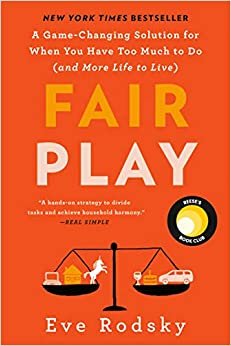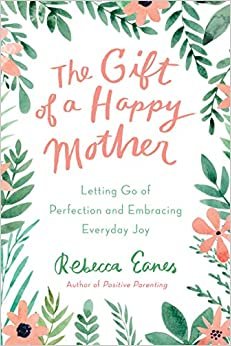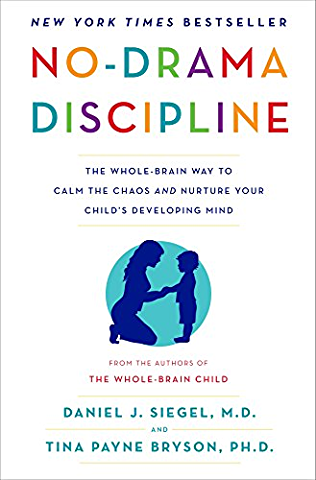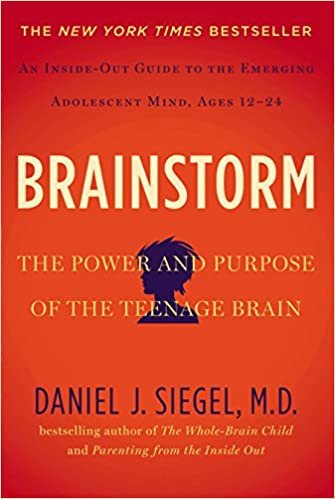Parental Burnout, Overwhelm | Mom Burnout is Real!
Do you find yourself feeling exhausted before the day has even begun? The idea of getting the kids ready for school and/or daycare, making breakfast, packing lunches, and getting out the door on time just feels insurmountable.
Or maybe the thought of getting your crying baby out of the crib fills you with dread. The dirty diaper that is waiting you and they’re going to be hungry and you haven’t had your morning coffee yet.
Or maybe your toddler wants you to play with them. Or they are making their 100th unreasonable demand and it’s not even noon. They’re crying because you gave them the wrong color plate. They don’t want you to peel the banana, but you already did cause they asked you to a minute ago.
You’re tired and sleep is not enough to feel rested.
You find yourself checking out by scrolling social media all day and binging on TV late into the night.
You feel trapped.
You recognize that you are not the parent you used to be and you are far from the parent that you had wanted to be.
You feel guilt and shame for this and still, it just feels too much to do anything differently.
You’re on survival mode, just trying to get through the day.
Sounds like you have Burnout
What is Parental Burnout?
The term “Burnout” was first studied by a German psychotherapist, Herbet Freudenberger, in 1974. He described it as: “becoming exhausted by making excessive demands on energy, strength, or resources” and used it within the work setting.
He also identified three components of it, including:
Emotional Exhaustion- a fatigue from caring too much for too long without reciprocity or enough support.
Depersonalization- a feeling of detachment and increased cynicism. Includes a lack of empathy and care.
Decreased sense of accomplishment- feeling like it didn’t matter what you did, that your efforts aren’t going to make a difference.
Parental burnout, is very similar to occupational burnout, however it is around our parenting. Unfortunately for us parents, there is no real opportunity to “clock out” for the day or take an extended vacation.
We’ll define Parental Burnout as the physical, mental, and emotional state of feeling exhausted due to the on-going stress and demands of parenting.
How is Parental Burnout Different from Stress?
Stress is a normal part of life and a normal part of parenting. Stress is what we feel when we have some sort of demand/strain on us physically, emotionally, and/or psychologically. Every day we encounter stress.
How we deal with our stress is largely dependent on our perception on how well we can handle it. If we view we are limited in handling it, then will we experience a higher level of stress.
Burnout happens when we continually encounter stress and we start to feel that we have a lack of control and/or ability to deal with that stress. Overtime this stress will become “too much” for our system and we will start to experience real and serious effects from it.
Parental burnout is basically feeling constant stressed and feeling overwhelmed and unable to do anything about it. All parents feel stress, not all parents will experience burnout.
What contributes to Burnout?
The biggest contributor to burnout is a lack of resources and support system. As a country, families are very limitedly supported. We don’t have a national parental leave, there is a lack of available, safe, and affordable childcare options, a lack of community and connection, financial insecurity, etc.
Parents (especially mothers) are expected to do it all- to raise children with exposure to a variety of different activities, to feed them healthy and nourishing meals, to teach them emotional intelligence while also laying the groundwork for them to be high achieving, to be social-able, kind, compassionate, but also assertive and leaders. Parents are also expected to keep a clean and organized house and to participate in all the things. They also need the cash to do all this, so that also includes working and being successful at their job, while also making sure they are present and involved in their children. Oh, and they are expected to be available 24-7 to their job, to always be checking their email, to work late, and to be finishing up work tasks on the evenings and weekends.
How would one not feel burnout by all these demands?
The pandemic has obviously contributed a lot to burnout, however, parental burnout was increasing even before the year 2020.
The Phases of Parental Burnout
Researchers have identified 3 phases of Parental Burnout.
The first phase is an overwhelming exhaustion. This can be physical and/or emotional/mental. Parents of babies and young children often identify a more physical exhaustion, while parents of teens express a more emotional/mental exhaustion (and from personal experience- I’d say parents of toddlers are going to be experiencing both physical and mental exhaustion 🤪).
In this phase, the little breaks a parent may get are not enough to counter the exhaustion. The demands are constant and never-ending.
The second phase of Parental Burnout is when we start to emotionally distance ourselves from our children as a way to cope with the overwhelm. Many times this looks like putting our energy into getting our kids’ basic needs met, but not being very present and connecting with them on a deeper level. This can take form through distractions such as constant social media scrolling, drinking more alcohol and/or using more marijuana, working more, etc.
This then leads to the third phase of burnout, which is when we start to experience a loss of fulfillment and start to recognize that we are not being the parent we want to be. This phase is often filled with guilt and shame. We are able to recognize that we are not the parent we used to be nor the parent we had hoped to be and we can feel pretty helpless and overwhelmed and how to change this. We feel guilt (“I’m not behaving in line with my values”) about this and then it leads to shame (“I’m a bad parent, a bad mom”).
These phases build on top of one another, so once we’re in that third phase of lack of fulfillment, feeling guilt and shame, we are still feeling overwhelmingly exhausted and continue to distance from our children.
As you can imagine, Parental Burnout can be very harmful, as its effects our felt on our children.
Children need emotional closeness and when parents start to distance, children feel it. If you’re in this phase you may notice your child start to act out more or become more “needy” for your attention. This of course can create a negative cycle, as the increase in these behaviors can also increase your feelings of overwhelm and burnout.
Parental aggression also becomes a concern during burnout. Because you become more distant and start losing fulfillment of a parent, you become quicker to react more aggressively verbally and/or physically.
With this creates more feelings of guilt and shame and leads to a vicious cycle. You see how you are far away from the parent you want to be, this evokes guilt and shame, which then leads to more overwhelm and burnout, which then creates more guilt and shame. It becomes a never-ending cycle that continually feeds into itself and increases the burnout.
It’s important to note, that not all parents that are burnt out are going to become physically aggressive towards their children, however it is a very real possibility and a place that no parent wants to find themselves in.
Parental burnout is very serious and needs to be addressed and cared for.
How do you Treat Parental Burnout?
If you are starting to recognize yourself in Parental Burnout, it can be hard to not feel guilt by it. It’s important to know that you can get out of it and there is help available. Also, it’s not your fault.
So much of our systems are working against parents and especially moms (and especially those from marginalized communities). We are living, breathing beings and when the demands are too much for too long, we are going to feel it and be affected by it. Burnout is a very natural reaction to too much stress and not enough resources to cope with it.
So, how do you recover from Parental Burnout? The following are some strategies that can help you if you are starting to feel burnt-out, or if you’re already there.
Talk About It
A big part of Parental Burnout is feeling isolated from support and shame around how we are feeling. Feeling bad because you are not being the parent you wanted to be or the parent you once were. We feel so shameful about this, that we keep it to ourselves and we think we are the only ones going through. The thing is, shame thrives on secrecy. The more we keep this to ourself, the more shame grows.
Talking about it with a partner, close friend or trusted family member can be really helpful. It can also be helpful to know that you aren’t the only one feel this way. Many parents go through phases of burn out. Understanding that you aren’t the only one that is feeling reactive towards your kids or finding yourself “checking out” during time with your children, can be helpful in decreasing shame around this.
If you feel your burnout out is getting in the way of your daily functioning, if you are finding yourself on the verge or becoming aggressive towards your kids, or that you start to have suicidal thoughts- it’s really important to seek out professional help, such as with a licensed therapist.
Reassess Your Situation
It can be helpful to really look at your current situation and identify if there are certain areas that cause the most stress. Then identify how you can either get support or change up those tasks.
Maybe the laundry piles up and it feels impossible to get through it- try running smaller loads more frequent so it doesn’t feel so overwhelming. Also, can you let go of some of your standards on this? I know of one mom that just sorts the clean clothes by child and puts them in a laundry basket, not worrying about folding them. A little wrinkle is not going make a difference in your child’s day, however, not worrying about folding clothes can really lighten your load.
Another important aspect of this is to assess how the mental load is affecting you. The mental load is all those tasks and future concerns that you hold in your head. For example, you know it’s almost time to schedule your child’s next well checkup and you know that the weather is changing and that they outgrew their clothes from this season last year, so you need new ones. Also, your car is probably due for an oil change and you’re almost out of bread. All that holds space in your head and even when you aren’t actively thinking about it, it’s there, and it increases your overall stress load.
If you are in a partnership, it’s really important to look at all the tasks that are keeping your family and household running and make an intentional effort to divide these up in a more equitable division. Interested in learning more about this- check out the mental load resources including the book Fair Play.
It’s also important to identify and highlight moments of gratitude. When we are stressed, we become very negative focused and we tend to only look for what is going wrong. We then start to develop a tunnel vision where we only see the bad and we overlook the good. Taking time each to to identify what you are grateful for and to intentionally highlight moments in your day that being you some gratitude can be really important to start to shift out of that tunnel vision.
I have found this to be incredibly helpful for myself during times of overwhelm. I will intentionally pause and just really look at my child and I try to really focus on their littleness and the big love they exude. I also will try to pay attention to little moments when my kids are playing together, or when one will come up for a hug or some small gesture they do that is really cute. I will highlight it in my head and really emphasize it for myself. When I do this, I start to feel an increase in that love in myself which leads to more frequent moments of gratitude which increases my overall level of content.
Make Small Changes
A particular aspect of parental burnout that is so difficult is that you can’t escape from parenting. It’s not like you can call out sick or take a vacation to give yourself a reboot.
Often times, when we are struggling, we want big, sweeping changes, however these aren’t always possible. For example- your work schedule is what it is and it’s not possible to just change it as you want, or maybe your child is going through a particular stage that can be tough (teething, tantrums, adolescence, etc.). We often focus so much on these bigger items, that yes are causing a lot of stress, but we have limited control around them and therefore feel helpless for anything to change.
Here’s the thing- there are also lots of small things we do every day that we do have control over and when we start to make changes in those areas, it can create a big payoff.
For example- going to bed earlier (yes, I get it, that’s your time for yourself, but keep reading…) can help you sleep better, which helps you feel better during the day, which then helps you feel less overwhelmed and stressed. You then are able to feel and recognize more positive moments which then increase your overall feeling of wellbeing. This then snowballs into a more positive thing and you may start to not even miss those late nights. Maybe now you wake up earlier to have some time in the morning to better start your day.
Sometimes just changing up your environment- taking the kids on a walk or to a playground can really help. It gets you out of the house, (so less mess is being made) and then you may interact more with other parents which can decrease those feelings of isolation.
Other ideas:
-simplifying/automating your meal process (such as: Mondays- Pasta, Tuesdays- Tacos; spending a little more to buy vegetables already cut, frozen rice or simple meal kits/salad packs)
-create a weekly schedule for activities (Mondays- park, Tuesdays- art…)
-simplify your laundry (such as the ideas above)
-get your kids involved in chores or meal prep (yes it can create more work, but then it becomes a shared task and increases your connection with them instead of engaging in that battle of trying to keep you child occupied while also trying to do these things).
-have dedicated tv time for the kids where you can then have some time for yourself
Develop Your Parenting Skills
A big aspect of parental burnout is recognizing that you are not the parent you once were and/or that you want to be. Sometimes this is due to your child’s development and not knowing how to respond to new and challenging behaviors. Taking time to do some research, read, and/or listen to podcasts or audio books around parenting can be very helpful in teaching your new tools and perspectives that can shift your current outlook.
Check out the Resource list at the end of this article of some of my favorite books around Parenting.
Dial-Down on the Perfectionism
As parents, we want the best for our children. We also know a lot more now and recognize how important our parenting is for our child’s overall wellbeing as an adult. With this also comes all the knowledge of how we are “supposed” to be doing things. Yet, we are imperfect people, with our own emotions and with that means we aren’t going to do everything perfectly (or even well at times). Not living up to our (impossible) expectations can add to our overwhelm and feelings of guilt and shame.
Perfectionism can also show up in how we (and our children and households) are appearing to others, which can add to our overwhelm of what we need to get done. Sometimes this perfectionism shows up more about how we want to give our children “everything.” For example- we want our children to experience all the extracurricular activities we either did or maybe didn’t get a chance to do.
Another thing that I notice that comes up a lot with my clients is that they hold themselves to the same level of pre-kids. They think, because they did certain things before they had kids, they feel like they should still be able to do those things at that same level. Here’s the thing- just because we may be able to do something at a level, does not mean we are able to do it at that level at this moment in time in this circumstance (or if we are, at what cost is it going to take?).
An example of this is- I love the Kon Mari method of folding clothes and before kids, I went through the whole “Tidying Up” process with my clothes. However, with a baby and toddler, I found myself feeling overwhelmed by household tasks. My husband would fold the laundry and then I’d find myself later re-folding it to keep the Kon Mari method. I realize that this did not make sense and I had to let it go. I still fold clothes this way, but I keep the clothes my husband and kids fold as is. And you know what- it’s all okay!
When is Therapy Needed for Burnout?
Higher levels of Parental Burnout are associated with sleep disorders, increased relationship conflicts, losing your temper more, and depression. It can also lead to physical concerns including hormone imbalances, high blood pressure, weight gain, body aches and pains, etc. Getting help for burnout is really important.
Therapy can be extremely helpful in treating or even preventing Parental Burnout. As you know, a big part of burnout is the shame that is attached to it. When we start to talk about this, our shame will decrease. Talking about all this in therapy provides you that safe place to share without judgment and to get support. Your therapist can also help you identify changes you can make and create a plan to do so.
So many times we try to wait it out. We think, in time, it will get better. Unfortunately, for Burnout, unless we get support and start to make some real changes, it’s not going to get better, as the demands on parents aren’t decreasing. The more symptomatic we are, the longer and harder it is to start to feel better. It doesn’t mean we can’t do it, it’s just going to take some time. Seeking out help sooner can save you not just a lot of time, but can keep you feeling experiencing a lot of pain. Not once has a therapy client said they wished they waited longer for therapy. Most expressed they wished they would have started sooner. If you’ve been struggling and you’re on the fence about starting therapy (or maybe you’re nervous about it), take this as a sign to move forward with it.
You and your children will be so much better for it.
Are you in California and interested in my services? Schedule a consult or session today!
Resources Discussed in Blog
*these are affiliate links, I get a small commission if you purchase from this link, at no extra cost to you.
Disclaimer: This is not a replacement for a therapeutic relationship or mental health services. This is for educational purposes only and should be in used only in conjunction in working with a licensed mental health professional. If you are in California and looking for a professional therapist feel free to use the contact me to request an appointment or search Psychology Today for local therapists in your area.















